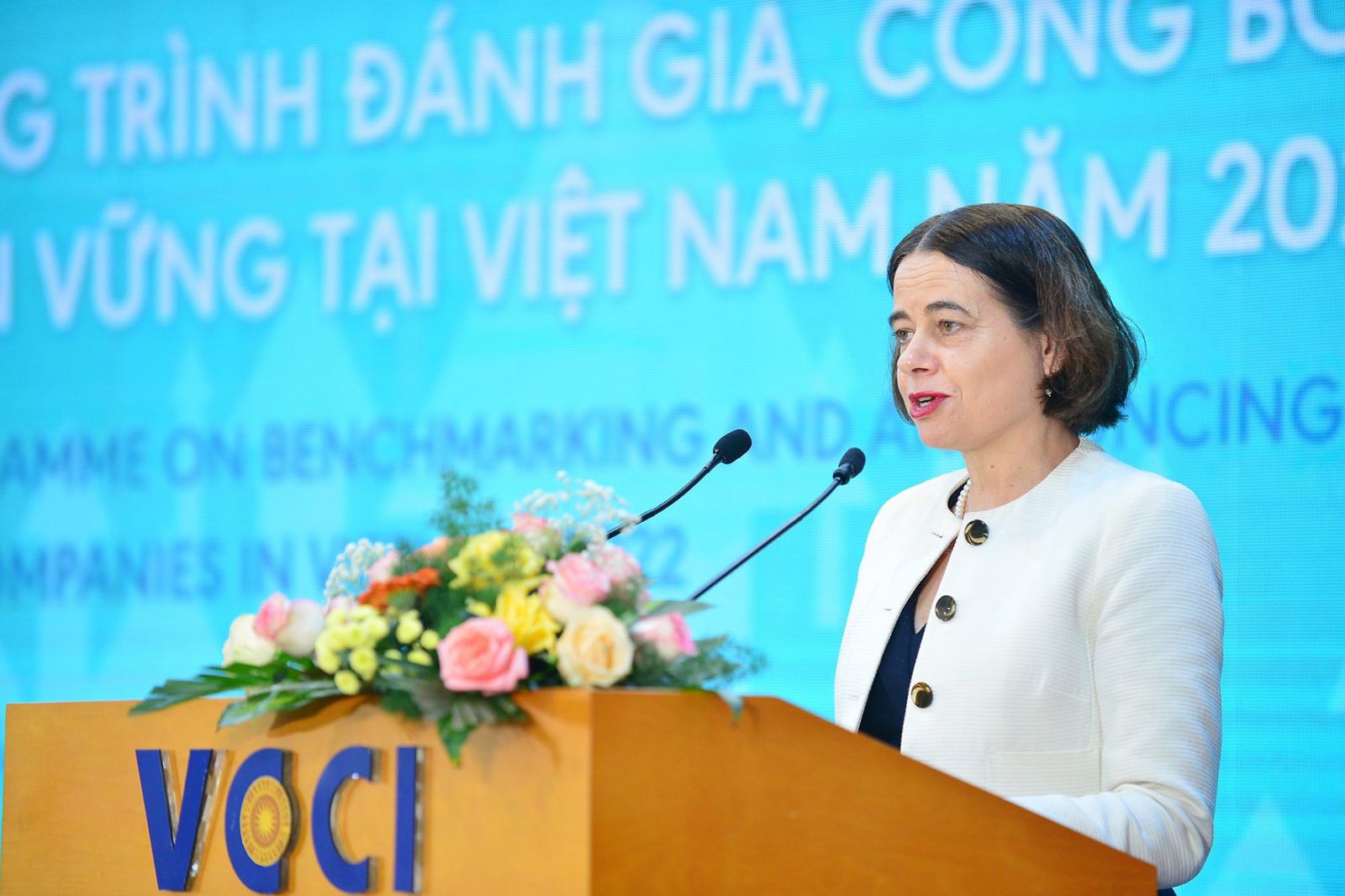Assisting tourism businesses to meet their responsibility to respect all human rights
Respect for human rights aids in the creation of a comprehensive risk management system for human resources and business operations, boosts competitiveness, and supports the sustainable development of businesses.

Ms. Doan Thi Thanh Tra, Director of Marketing – Communication at Saigontourist
>> Responsible business and human rights in the tourism industry
Human rights in tourism activities
In reality, human rights have a direct impact on how businesses operate across all industries, including the tourism sector. Respecting human rights in business activities will have a positive long-term impact on the enterprise's development strategy as well as the welfare of its personnel. In the wake of the coronavirus pandemic, businesses can recover quickly and sustainably by respecting human rights in the workplace.
Ms. Doan Thi Thanh Tra, Director of Marketing – Communication at Saigontourist, shared: “Saigontourist, one of the leading tour operators in Vietnam, has always prioritized employee welfare in order to lay the groundwork for the development of a knowledgeable and motivated workforce that can contribute to the expansion of the business.”
“During the COVID-19 outbreak, Saigontourist ordered all of its subsidiaries to abide by the COVID-19 prevention and control policies and provide the greatest amount of material and spiritual support for its employees”, said Ms. Doan Thi Thanh Tra.
One of Saigontourist's overarching strategies is to ensure that no employees lose their jobs as a result of the effects of the pandemic; the tour operator started the movement "Saigontourist officials and employees strive to overcome difficulties, be creative, determined, and win against COVID-19" aiming to successfully implement certain key initiatives such as "dual goals" (fighting against the COVID-19 pandemic while maintaining production and business); "three on-site" (eating, sleep ing, and working without leaving to keep production going while ensuring COVID-19 control and prevention measures), and "one road, two places" (businesses must arrange staff transportation on one road between the accommodation and the workplace); and to implement reasonable labor regulations, with employees taking turns on leave while still making sure to pay social insurance, health insurance, and unemployment insurance.
Ms. Doan Thi Thanh Tra affirmed, Saigontourist has kept the same staff resources as before the pandemic and promptly restored and developed travel activities thanks to the significant measures put in place, which proved to be highly effective.
In reality, few tourism businesses in Vietnam currently guarantee the wellbeing of their employees based on respect for human rights. Most businesses are not properly aware of the significance of human rights, or do not know how to respect human rights in their business strategy. This fact has triggered a wide range of repercussions that have an immediate impact on employee welfare and the durable development of businesses.
Prof. Dr. Nguyen Thi Thanh Hai, Deputy Director of the Institute of Human Rights under the Ho Chi Minh National Academy of Politics, commented on this issue and noted that the tourism sector, one of the most dynamic and rapidly growing economic sectors, generates about 10% of jobs in Vietnam. The tourism sector can impact upon the right to an adequate standard of living, the right to free movement, rest and recreation, and the right to culture.
Poor working conditions, labor exploitation, including the risk of modern slavery, environmental violations, and adverse effects on the residential communities in the tourist area are just a few of the many human rights risks that tourism businesses need to be aware of and address in their operations and value chains.
>> Promoting responsible business and human rights in Vietnam
Promoting business support
The tourism industry, because of it’s very nature, is seen as being associated with people, either directly or indirectly. In other words, the key factor in determining the success and long-term growth of a tourism company is its human resources.
Prof. Dr. Nguyen Thi Thanh Hai stated that in order to support tourism businesses in implementing the United Nations Guiding Principles on Business and Human Rights, it is first necessary for them to avoid creating or contributing to negative impacts as well as violating human rights in their business activities.
Prof. Dr. Nguyen Thi Thanh Hai stated: "Tourism businesses themselves need to take measures to prevent or mitigate the said harmful effects or, where they have occurred, to address negative impacts on human rights in their operations, products, or services in value chains and business relationships."
Additionally, a lot of companies have looked at their human rights obligations through a variety of specific solutions, such as developing and putting into practice a human rights review process to find, avoid, reduce, and take accountability for any risks or negative impacts related to human rights that may arise throughout their supply chain.
Both national and international legislation on business and human rights are being enhanced. Among these, the United Nations Guiding Principles on Business and Human Rights were formally ratified and came into force in 2011. As a United Nations member, Vietnam supports these values and continues to urge businesses to do the same.

Australian Ambassador to Vietnam Robyn Mudie
The VCCI, with technical assistance provided by the Australian Human Rights Commission (AHRC), has recently incorporated a new Human Rights indicator into the CSI 2022 Index with the aim of increasing awareness and assisting all Vietnamese businesses, including those in the tourism sector, to better understand the requirement for businesses to respect human rights. This is seen as a significant advancement in the evaluation of sustainable corporate growth.
With support from the Australian Department of Foreign Affairs and Trade (DFAT), AHRC and VCCI have developed Guidance on Responsible Business Conduct in the Tourism Industry in Vietnam (the Guidance) in order to identify the key human rights challenges and risks that arise in the Vietnamese tourism industry and to provide practical guidance based on international frameworks and principles. This is done specifically to support the business community in their responsibility to respect human rights.
The Guidance also indicates that being a responsible business means embracing a different understanding of risk which centres on "risks to people" as well as "risks to business". Additionally, meaningful engagement and consultation with key stakeholders will enable businesses to obtain a holistic understanding of its human rights risks and impacts.
The Australian Government has also cooperated with the Vietnamese Government to create awareness, and respect human rights in commercial activities ranging from micro and small businesses to influential corporations and groups in Vietnam.
Australian Ambassador to Vietnam Robyn Mudie said, "Australia is proud to have supported Vietnam’s highly successful international integration agenda, including supporting Vietnam to implement its WTO commitments as well as the commitments it has made under CPTPP and RCEP. These important agreements have had a transformational effect on Vietnam’s business environment and made Vietnam more attractive as an investment destination and more competitive as a trading nation".










